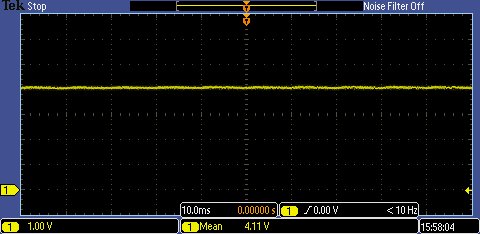4W LED 12V-24V AC/DC MR16 Warm White Review
General Information
| ID | #256 |
|---|---|
| SKU | AGL-MR16-LED-4W |
| Series | N/A |
| Manufacturer | Aqualux (other LEDs from Aqualux) |
| Fitting Type | MR16 (other MR16 LEDs) |
| Light Type | Downlight (PAR) |
| Height | 40mm |
| Diameter | PAR16 (50mm) |
| Weight | 42g |
| Warranty | 3 Years |
| Test Date | 2014-04-04 |
| Review Notes | Designed for landscape lighting use. Claimed light source: Seoul Semi 3030 LED chip. Accepts 12-24V AC/DC either from an iron core transformer or DC power supply. Vendor states it is not compatible with 12VAC electronic transformers. Flexible input range allows higher voltage transformer to drive LED light while compensating for the voltage drop in long outdoor cable runs. Test conducted using 24VAC PowerTech unregulated Power supply (pictured in gallery), which supplied 27VAC under load from 1.8m leads. Overall efficiency would improve slightly with additional LEDs in cable run. |
| Price | $17.40 (AUD) from RockAroundTheBlock.com.au on 30th of March 2014 |
| Rating |      |
|---|
LED Specifications
| Claimed | Measured |
Compared To |
|
|---|---|---|---|
| Watts | 4W | 5.5W @ 27V Wirewound Transformer | 54.7W @ 12V |
| Yearly Running Cost[?] | $0.88 | $1.20 | $11.98 |
| Lumens | 250 lm | 242 lm | 765 lm |
| Efficiency[?] | 63 lm/W | 44 lm/W | 14 lm/W |
| Lumens/Purchase Price | 14 lm/$ | 14 lm/$ | 170 lm/$ |
| Power Factor[?] | N/A | 0.43 | 1 |
| Color [?] | Warm White, 3000K | Warm White, 3116K | Warm White, 3015K |
| Angle[?] | 35° | 36° | 45° |
| Dimmable | Not Dimmable | N/A | Yes, Trailing Edge |
| CRI (Color Accuracy)[?] | 83 | 84 | |
| Life | 30,000 hours | Not Measured | 6,000 hours |
| Min/Max Voltage | 12V / 24V | N/A | |
| Min/Max Temperature | N/A / N/A | N/A | |
| Measured Temperature | 66°C @ 25°C ambient 151°F @ 77°F ambient |
256°C @ 25°C ambient 493°F @ 77°F ambient |
|
| Flicker Percent[?] | 1% | 3% | |
| Flicker Index[?] | 0.002 | 0.008 |
Link to manufacturer specifications at time of testing
Advertisement
Distribution Graph
Angle: 36° (±18° from bottom), Maximum lux:
Graph notes: Shows the intensity of the light when viewed from different angles. Normal omni-directional globes have a fairly constant output all the way around (excepting directly above). Downlights have a narrow range at the bottom in which the light is emmited, this determines their angle.
Spectrum Graph

Graph notes: Shows the breakdown of the LED light into its component colors. With short wavelength ultraviolet on the left and long wavelength infrared on the right. The green line represents the relative absolute strength of the light at each frequency, while the red line represents what the typical human eye would see. The human eye is most sensitive to green light, but much less sensitive to purples and deep reds.
Flicker Graph

Percent: 1%, Index: 0.002 (lower is better in both cases)
Graph notes: Shows variation in light output over 1/10th of a second, with relative light output on the Y axis and time on the X Axis. Measured with a photodiode connected to an Oscilloscope. Ideally the yellow line should be flat. Low frequency high amplitude waveforms mean there is a possibility of noticeable flicker, but sensitivity to flicker varies between people. [More details about LED flicker]
Disclaimer: While every effort has been made to ensure the accuracy of these results, each measurement carries an inherent degree of uncertainty and error. Safety and EMC compliance of products to regional or international standards have not been verified unless noted as an ENERGY STAR® LED Lighting Facts, or SSL Quality Scheme certified product. Retailers and importers selling unmarked or unapproved electrical goods can be fined or imprisoned. Mains supplied downlights require installation by a licensed electrician.